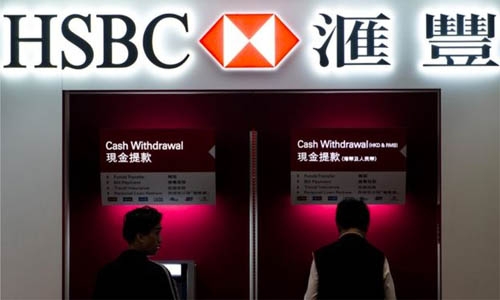HSBC profits slide amid 'turbulent period'
HSBC has reported a 29% fall in profits in the first half of the year amid a "turbulent period" for the banking giant.
It posted a pre-tax profit of $9.7bn (£7.2bn) for the first six months, down by $3.9bn.
HSBC also announced a share buyback of up to $2.5bn in the second half of this year.
In a statement, HSBC described the weak numbers as a "reasonable performance in the face of considerable uncertainty".
For the second quarter, pre-tax profits were $3.1bn, down from $6.1bn for the previous three months.
The fall in profits was in line with what analysts had expected as a result of restructuring costs and weak revenues.
Chairman Douglas Flint said the falls came amid a "turbulent period" for the bank.
'Uncertainty'
"The period ended with exceptional volatility as financial markets reacted to the UK referendum decision to leave the EU, a result that had not been anticipated," he said.
HSBC chief executive Stuart Gulliver also raised the fallout of the UK's vote to leave the European Union: "There has been a period of volatility and uncertainty which is likely to continue for some time."
The Brexit vote meant the UK and UK business were entering a "new era", Mr Flint added as he warned that negotiating Brexit and new global trade deals would be complex and time-consuming.
The London and Hong Kong-based bank's results come as Europe's banking sector is squeezed by deteriorating yields amid record low interest rates and higher regulatory costs.
HSBC has its headquarters in the UK, but the financial institution makes most of its money overseas.
Asia accounted for 83.5% of HSBC's global pre-tax profit last year.
The bank's shares are listed in London, Paris, New York and Hong Kong. On Hong Kong's Hang Seng, HSBC rose 0.8% in afternoon trading.
Meanwhile, one of HSBC's biggest rivals, Standard Chartered, reported better news in its half-year results.
The profit before tax of $1bn (£749m) was largely attributed to cost-cutting measures amid growing economic uncertainty.
While the Asia and Africa-centric bank mentioned the UK's vote to leave the EU as a potential risk, it said its exposure to predominantly non-European markets meant any impact would be limited.
Related Posts

